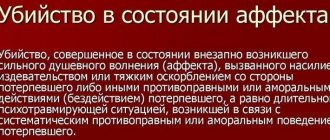Chapter 2. Rights and freedoms of man and citizen
Article 17
1. In the Russian Federation, the rights and freedoms of man and citizen are recognized and guaranteed in accordance with the generally recognized principles and norms of international law and in accordance with this Constitution.
2. Fundamental human rights and freedoms are inalienable and belong to everyone from birth.
3. The exercise of human and civil rights and freedoms should not violate the rights and freedoms of other persons.
Article 18
The rights and freedoms of man and citizen are directly applicable. They determine the meaning, content and application of laws, the activities of the legislative and executive powers, local self-government and are ensured by justice.
Article 19
1. Everyone is equal before the law and the court.
2. The state guarantees equality of rights and freedoms of man and citizen, regardless of gender, race, nationality, language, origin, property and official status, place of residence, attitude to religion, beliefs, membership in public associations, as well as other circumstances. Any form of restriction of the rights of citizens on the basis of social, racial, national, linguistic or religious affiliation is prohibited.
3. Men and women have equal rights and freedoms and equal opportunities for their implementation.
Article 20
1. Everyone has the right to life.
2. Until its abolition, the death penalty may be established by federal law as an exceptional measure of punishment for especially serious crimes against life, providing the accused with the right to have his case heard by a court with the participation of a jury.
Article 21
1. Personal dignity is protected by the state. Nothing can be a reason to belittle him.
2. No one should be subjected to torture, violence, or other cruel or degrading treatment or punishment. No one can be subjected to medical, scientific or other experiments without voluntary consent.
Article 22
1. Everyone has the right to freedom and personal security.
2. Arrest, detention and detention are permitted only by court decision. Pending a court decision, a person cannot be detained for more than 48 hours.
Article 23
1. Everyone has the right to privacy, personal and family secrets, protection of their honor and good name.
2. Everyone has the right to privacy of correspondence, telephone conversations, postal, telegraph and other messages. Restriction of this right is permitted only on the basis of a court decision.
Article 24
1. Collection, storage, use and dissemination of information about the private life of a person without his consent is not permitted.
2. State authorities and local self-government bodies, their officials are obliged to provide everyone with the opportunity to familiarize themselves with documents and materials that directly affect their rights and freedoms, unless otherwise provided by law.
Article 25
Home is inviolable. No one has the right to enter a home against the will of the persons living there, except in cases established by federal law, or on the basis of a court decision.
Article 26
1. Everyone has the right to determine and indicate their nationality. No one can be forced to determine and indicate their nationality.
2. Everyone has the right to use their native language, to freely choose the language of communication, education, training and creativity.
Article 27
1. Everyone who is legally present on the territory of the Russian Federation has the right to move freely, choose their place of stay and residence.
2. Everyone can freely travel outside the Russian Federation. A citizen of the Russian Federation has the right to freely return to the Russian Federation.
Article 28
Everyone is guaranteed freedom of conscience, freedom of religion, including the right to profess, individually or together with others, any religion or not to profess any, to freely choose, have and disseminate religious and other beliefs and to act in accordance with them.
Article 29
1. Everyone is guaranteed freedom of thought and speech.
2. Propaganda or agitation that incite social, racial, national or religious hatred and enmity are not permitted. Promotion of social, racial, national, religious or linguistic superiority is prohibited.
3. No one can be forced to express or renounce their opinions and beliefs.
4. Everyone has the right to freely seek, receive, transmit, produce and disseminate information by any legal means. The list of information constituting a state secret is determined by federal law.
5. Freedom of the media is guaranteed. Censorship is prohibited.
Article 30
1. Everyone has the right to association, including the right to create trade unions to protect their interests. Freedom of activity of public associations is guaranteed.
2. No one can be forced to join or remain in any association.
Article 31
Citizens of the Russian Federation have the right to assemble peacefully, without weapons, to hold meetings, rallies and demonstrations, processions and picketing.
Article 32
1. Citizens of the Russian Federation have the right to participate in the management of state affairs, both directly and through their representatives.
2. Citizens of the Russian Federation have the right to elect and be elected to government bodies and local self-government bodies, as well as to participate in a referendum.
3. Citizens declared incompetent by a court, as well as those held in prison by a court sentence, do not have the right to elect or be elected.
4. Citizens of the Russian Federation have equal access to public service.
5. Citizens of the Russian Federation have the right to participate in the administration of justice.
Article 33
Citizens of the Russian Federation have the right to apply personally, as well as send individual and collective appeals to state bodies and local governments.
Article 34
1. Everyone has the right to freely use their abilities and property for entrepreneurial and other economic activities not prohibited by law.
2. Economic activities aimed at monopolization and unfair competition are not allowed.
Article 35
1. The right of private property is protected by law.
2. Everyone has the right to own property, own, use and dispose of it, both individually and jointly with other persons.
3. No one can be deprived of his property except by a court decision. Forced alienation of property for state needs can only be carried out subject to prior and equivalent compensation.
4. The right of inheritance is guaranteed.
Article 36
1. Citizens and their associations have the right to own land in private ownership.
2. Possession, use and disposal of land and other natural resources are carried out by their owners freely, if this does not cause damage to the environment and does not violate the rights and legitimate interests of other persons.
3. The conditions and procedure for using land are determined on the basis of federal law.
Article 37
1. Labor is free. Everyone has the right to freely use their ability to work, choose their type of activity and profession.
2. Forced labor is prohibited.
3. Everyone has the right to work in conditions that meet safety and hygiene requirements, to remuneration for work without any discrimination and not lower than the minimum wage established by federal law, as well as the right to protection from unemployment.
4. The right to individual and collective labor disputes is recognized using the methods for resolving them established by federal law, including the right to strike.
5. Everyone has the right to rest. A person working under an employment contract is guaranteed the length of working hours established by federal law, weekends and holidays, and paid annual leave.
Article 38
1. Motherhood and childhood, the family are under the protection of the state.
2. Caring for children and raising them is an equal right and responsibility of parents.
3. Able-bodied children who have reached the age of 18 must take care of disabled parents.
Article 39
1. Everyone is guaranteed social security by age, in case of illness, disability, loss of a breadwinner, for raising children and in other cases established by law.
2. State pensions and social benefits are established by law.
3. Voluntary social insurance, the creation of additional forms of social security and charity are encouraged.
Article 40
1. Everyone has the right to housing. No one can be arbitrarily deprived of their home.
2. State authorities and local self-government bodies encourage housing construction and create conditions for the exercise of the right to housing.
3. Low-income people and other citizens specified in the law who need housing are provided with it free of charge or for an affordable fee from state, municipal and other housing funds in accordance with the norms established by law.
Article 41
1. Everyone has the right to health care and medical care. Medical care in state and municipal health care institutions is provided to citizens free of charge at the expense of the corresponding budget, insurance premiums, and other revenues.
2. In the Russian Federation, federal programs for the protection and promotion of public health are financed, measures are taken to develop state, municipal, and private health care systems, activities that promote human health, the development of physical culture and sports, environmental and sanitary-epidemiological well-being are encouraged.
3. Concealment by officials of facts and circumstances that pose a threat to the life and health of people entails liability in accordance with federal law.
Article 42
Everyone has the right to a favorable environment, reliable information about its condition and to compensation for damage caused to his health or property by environmental violations.
Article 43
1. Everyone has the right to education.
2. General accessibility and freeness of preschool, basic general and secondary vocational education in state or municipal educational institutions and enterprises are guaranteed.
3. Everyone has the right to receive higher education free of charge on a competitive basis at a state or municipal educational institution and enterprise.
4. Basic general education is mandatory. Parents or persons replacing them ensure that their children receive basic general education.
5. The Russian Federation sets federal state educational standards and supports various forms of education and self-education.
Article 44
1. Everyone is guaranteed freedom of literary, artistic, scientific, technical and other types of creativity and teaching. Intellectual property is protected by law.
2. Everyone has the right to participate in cultural life and use cultural institutions, to have access to cultural values.
3. Everyone is obliged to take care of the preservation of historical and cultural heritage, to protect historical and cultural monuments.
Article 45
1. State protection of human and civil rights and freedoms in the Russian Federation is guaranteed.
2. Everyone has the right to protect their rights and freedoms by all means not prohibited by law.
Article 46
1. Everyone is guaranteed judicial protection of his rights and freedoms.
2. Decisions and actions (or inaction) of state authorities, local governments, public associations and officials may be appealed to the court.
3. Everyone has the right, in accordance with international treaties of the Russian Federation, to apply to interstate bodies for the protection of human rights and freedoms if all available domestic remedies have been exhausted.
Article 47
1. No one can be deprived of the right to have his case considered in the court and by the judge to whose jurisdiction it is assigned by law.
2. A person accused of committing a crime has the right to have his case examined by a court with the participation of a jury in cases provided for by federal law.
Article 48
1. Everyone is guaranteed the right to receive qualified legal assistance. In cases provided for by law, legal assistance is provided free of charge.
2. Every person detained, taken into custody, or accused of committing a crime has the right to have the assistance of a lawyer (defender) from the moment of detention, detention, or presentation of charges, respectively.
Article 49
1. Everyone accused of committing a crime is considered innocent until his guilt is proven in the manner prescribed by federal law and established by a court verdict that has entered into legal force.
2. The accused is not required to prove his innocence.
3. Irremovable doubts about a person’s guilt are interpreted in favor of the accused.
Article 50
1. No one can be convicted twice for the same crime.
2. In the administration of justice, the use of evidence obtained in violation of federal law is not permitted.
3. Everyone convicted of a crime has the right to have the sentence reviewed by a higher court in the manner prescribed by federal law, as well as the right to ask for pardon or commutation of punishment.
Everything about criminal cases
Go to the text of the Code of Criminal Procedure
Url Additional information:
- Part 1 38 Code of Criminal Procedure
investigator - a person conducting a preliminary investigation
Investigator's rights
- Part 2 38 Code of Criminal Procedure
powers of the investigator:
— clause 1 part 2 38 Code of Criminal Procedure
initiate a criminal case
— clause 2, part 2 38 Code of Criminal Procedure
take over a criminal case
— clause 3, part 2 38 Code of Criminal Procedure
independently directs the course of the investigation
- clause 4 part 2 38 Code of Criminal Procedure
give instructions to operatives
- clause 4 part 2 38 Code of Criminal Procedure
receive assistance from operatives
- clause 4.1 part 2 38 Code of Criminal Procedure
instruct to organize a conference call
- clause 5 part 2 38 Code of Criminal Procedure
has the right to appeal the return of the case from the prosecutor
— clause 6, part 2, 38 Code of Criminal Procedure
other powers
Disagreement with the prosecutor
— Part 3 38 Code of Criminal Procedure
the investigator's disagreement with the prosecutor's demands
Additional Information
— clause 6, part 1, 39 Code of Criminal Procedure
the head of the investigation department removes the investigator in case of violation of the Code of Criminal Procedure
Practical aspects
Powers of the prosecutor
regarding the investigator
Role of the investigator
when initiating a criminal case
Article 38 of the Code of Criminal Procedure. Investigator
Url Additional information:
— clause 41 5 Code of Criminal Procedure
investigator - a person conducting a preliminary investigation
1) The investigator is an official authorized, within the competence provided by the Code of Criminal Procedure, to carry out a preliminary investigation in a criminal case.
2) The investigator is authorized:
Url Additional information:
— Chapter 20
Code of Criminal Procedure procedure for initiating a case
1).
initiate a criminal case in the manner established by the Criminal Procedure Code;
2). accept the criminal case for its proceedings or transfer it to the head of the investigative body for referral according to jurisdiction;
Url Additional information:
- Part 3 39 Code of Criminal Procedure
the investigator has the right to object to the instructions of the head of the investigation
- clause 3.1
Plenum No. 1, refusal to act cannot be appealed under
Article 125 of the Code of Criminal Procedure
3). independently direct the course of the investigation, make decisions on investigative and other procedural actions, except for cases when, in accordance with the Criminal Procedure Code, it is required:
Url Additional information:
— Part 2 29 Code of Criminal Procedure
exclusive rights of the court in the pre-trial stage
- obtaining a court decision,
Url Additional information:
— clause 4 part 1 39 Code of Criminal Procedure
permission for preventive measures is given by the head of the investigation
— clause 4 part 1 39 Code of Criminal Procedure
actions requiring court approval with the consent of the head of the investigation agency
— or the consent of the head of the investigative body;
Url Additional information:
- part 1 152 of the Code of Criminal Procedure
the investigator may order actions in another place
PRACTICE
Example
partial reversal of the sentence due to lack of instructions
4). give the body of inquiry, in cases and in the manner established by the Criminal Procedure Code, mandatory written instructions:
— on carrying out operational search activities,
- carrying out individual investigative actions,
- on the execution of decisions on detention, arrest, on arrest, on the performance of other procedural actions,
— and also receive assistance in their implementation;
4.1). give the investigator, inquiry officer or inquiry body, in the manner prescribed by Article 189.1 of the Code of Criminal Procedure, a binding written order to organize the participation in the investigative action of a person whose participation in this investigative action is recognized as necessary;
5). appeal, with the consent of the head of the investigative body in the manner established by Part 4 221 of the Code of Criminal Procedure, the decision of the prosecutor:
- on the cancellation of the decision to initiate criminal proceedings,
Url Additional information:
- clause 10 part 1 39 Code of Criminal Procedure
consent of the head of the investigation office to appeal the return of the case
- Part 3 162 Code of Criminal Procedure
The time for appeal is not included in the investigation period
- on the return of the criminal case to the investigator for additional investigation,
Url Additional information:
- clause 15 part 2 37 Code of Criminal Procedure
return of case to change charges and qualifications
— Clause 2 Part 1 221 Code of Criminal Procedure
return of the case to change the scope of the charge
— changing the scope of the charge;
— or qualifications of the actions of the accused;
Url Additional information:
— Clause 2 Part 1 221 Code of Criminal Procedure
return of the case for re-drafting the conclusion
— or restatement of the indictment and elimination of identified deficiencies;
Url Additional information:
Other powers
- Part 1.1 148 Code of Criminal Procedure
refusal to initiate a prosecutor with the consent of the head of the investigation
- Part 3 153 Code of Criminal Procedure
connection of investigator's cases by decision of the head of the investigation
- Part 4 162 Code of Criminal Procedure
extension of the investigation period by the head of the investigation
- Part 2 163 Code of Criminal Procedure
creation of an investigation team
- Part 6 220 Code of Criminal Procedure
endorsement of the indictment by the head of the investigation
— Part 2 211 Code of Criminal Procedure
cancellation of the suspension of the investigation by the head of the Investigation Department
6).
exercise other powers provided for by the Criminal Procedure Code.
Url Additional information:
- Part 6 37 Code of Criminal Procedure
scheme for resolving a dispute between an investigator and a prosecutor
3) In case of disagreement with the prosecutor’s demands to eliminate violations of federal legislation committed during the preliminary investigation:
- the investigator is obliged to submit his written objections to the head of the investigative body,
Url Additional information:
- Part 4 39 Code of Criminal Procedure
consideration by the head of the investigation department of the prosecutor's demands
- who informs the prosecutor about this.
Return to the text of the Code of Criminal Procedure
Seek advice
Commentary on Article 38 of the Code of Civil Procedure of the Russian Federation
1. The commented article contains the traditional indication that the parties to civil proceedings are the plaintiff and the defendant. Parties in civil proceedings are persons whose material and legal dispute becomes the subject of judicial proceedings.
The following mandatory characteristics of a party can be distinguished:
1) only the subject of law can be a party. However, the current legislation also knows exceptions: in accordance with paragraph 3 of Art. 1175 of the Civil Code, until the acceptance of the inheritance, the creditors of the testator have the right to present their claims, including to the inherited property. If the plaintiff cannot identify the entity that violated his rights, then the corresponding substantive legal claim is not subject to consideration in the claim proceedings. In particular, the Supreme Court of the Russian Federation indicated that in cases where it is impossible to identify the person who disseminated defamatory information that does not correspond to reality (for example, when sending anonymous letters to citizens and organizations or disseminating information on the Internet by a person who cannot be identified), an application for recognition of disseminated information as untrue is considered in special proceedings <1>;
——————————— <1> See paragraph 2 of the Resolution of the Plenum of the Supreme Court of the Russian Federation “On judicial practice in cases of protecting the honor and dignity of citizens, as well as the business reputation of citizens and legal entities.”
2) the subject has procedural legal capacity (see commentary to Article 36 of the Code of Civil Procedure). Procedural capacity is not a sign of a party (a minor child or any other incapacitated person can be a party);
3) the subject must protect its material and legal interest, i.e. must be interested in the subject of the material and legal dispute. According to this criterion, persons who apply for the protection of other people’s interests are distinguished from plaintiffs: for example, if the prosecutor filed a lawsuit to recover wages in favor of an employee, then the plaintiff will be the employee himself.
Plaintiff is a person who applies to the court for protection of his material rights, as well as a person whose material rights are protected by court in other cases provided for by law.
Defendant is a person held accountable by the court for a claim made by the plaintiff. Usually the defendant is the one who is indicated as such in the statement of claim, however, para. 2 hours 3 tbsp. 40 of the Code of Civil Procedure establishes that if it is impossible to consider a case without the participation of a co-defendant or co-defendants due to the nature of the disputed legal relationship, the court shall involve him or them in participation in the case on its own initiative.
2. Part 2 of the commented article reproduces almost verbatim the contents of Part 2 of Art. 33 of the Code of Civil Procedure of the RSFSR: the person in whose interests the case was initiated at the request of persons applying to the court for the protection of the rights, freedoms and legitimate interests of other persons, is notified by the court of the resulting process and participates in it as a plaintiff. The legislator emphasizes that the initiative to initiate a civil case does not automatically entail the recognition of the person who applied to the court as a plaintiff. The plaintiff is always the one whose material rights are protected. However, in practice there are cases that do not fit into the classical concept of a plaintiff. For example, the prosecutor has the right to demand that a void transaction be declared invalid when none of its parties is interested in invalidating the transaction. In this case, although this contradicts the literal interpretation of Art. 45 of the Code of Civil Procedure, we believe that the prosecutor himself should be considered the plaintiff.
3. Part 3 of the commented article specifies the principle of equality enshrined in Part 1 of Art. 12 Civil Procedure Code. Equality of the parties is a necessary condition for the adversarial process. At the same time, equality, understood as the presence of identical rights, cannot be absolute due to the legal nature of specific procedural institutions. For example, such administrative powers as changing the basis or subject of the claim, increasing or decreasing the amount of claims, as well as abandoning the claim, can only belong to the plaintiff. On the contrary, recognition of the claim is the exclusive prerogative of the defendant. The same specific power as the right to conclude a settlement agreement can generally be exercised if there is a counter-will of the plaintiff and the defendant.
In comparison with the Civil Procedure Code of the RSFSR, Part 3 of the commented article contains one important clarification: the parties also bear equal procedural responsibilities. The legislator's approach seems fundamentally correct, however, here too it is necessary to take into account the legal nature of specific procedural institutions. For example, the obligation to pay state duty may lie only with the plaintiff.
4. On the rights and obligations of the plaintiff and defendant as persons participating in the case, see the commentary to Art. 35 Code of Civil Procedure.







